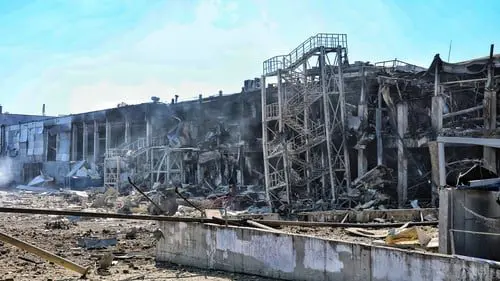The European Commission has proposed the creation of a “Platform for the Recovery of Ukraine”, to be led jointly by the EU and the Ukrainian authorities
“The International Coordination Platform, the Platform for Reconstruction of Ukraine, co-chaired by the European Commission representing the EU and the Government of Ukraine, will act as a comprehensive strategic governing body responsible for approving the recovery plan prepared and implemented by Ukraine, supported by administrative capacity. and EU technical assistance, “the statement said. The platform “will bring together supporting partners and organizations, including EU Member States, other bilateral and multilateral partners and international financial institutions”. “The Ukrainian Parliament and the European Parliament will participate as observers,” the EC added.
“The RebuildUkraine plan, approved by the platform based on a needs assessment, will become the basis for the EU and other partners in identifying priority areas selected for funding and specific projects. The platform will coordinate the sources of funding and their distribution to optimize their use, as well as monitor the progress of the plan, “explained the EC. Earlier, the proposal to create a plan and platform for the reconstruction of Ukraine was announced by the head of the European Commission Ursula von der Leyen. It must now be approved by the European Parliament and the Council of the EU.
The European Commission has decided to allocate 248 million euros to the 5 EU member states that have received the largest number of refugees from Ukraine. The funds will be used to support refugees and border control. This is stated in a statement of the EC. Poland, Romania, Hungary, Slovakia and the Czech Republic will receive emergency aid from European funds. Member States can use these funds to provide immediate assistance, such as food, transport and temporary housing, to people fleeing the Russian invasion of Ukraine, as well as to improve their ability to manage the EU’s external borders.
“Civil society organizations and local and regional authorities also play a key role in offering assistance, and as such Member States will need to ensure that this urgent funding also reaches them,” the statement said.







